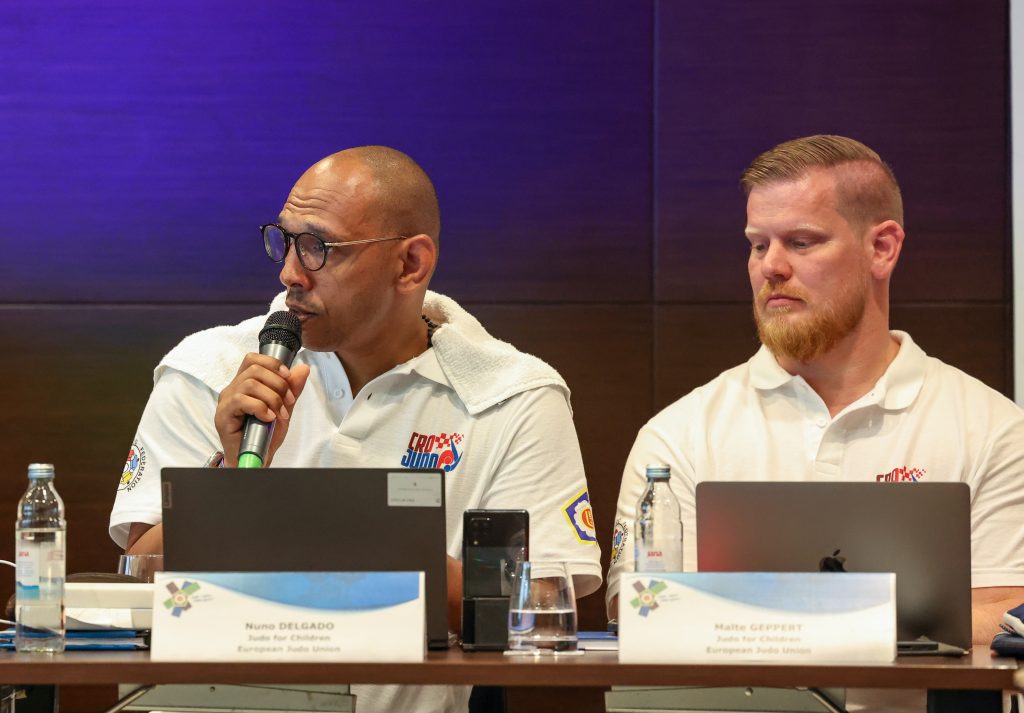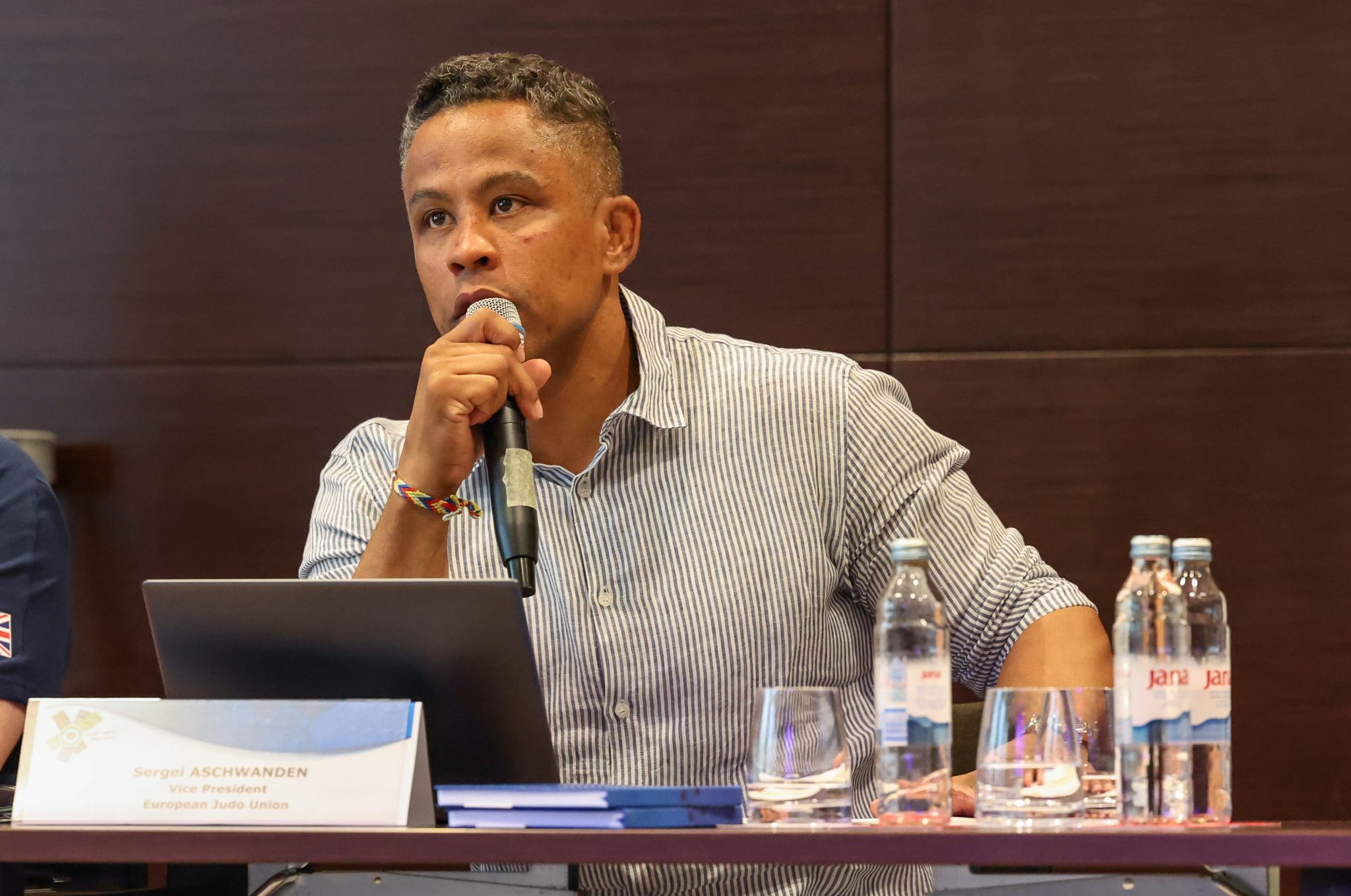Today on the 17th of June, the Judo Festival welcomed many of the leaders of the revived education department in the European Judo Union.
The Workshop for ‘Judo for Children and Adapted Judo in Europe’ was hosted by the Vice President, Sergei ASCHWANDEN, along with the likes of Education Director, Ronnie SAEZ, Adapted Judo Project Lead, Marina DRASKOVIC, Judo for Children team, Nuno DELGADO and Malte GEPPERT and Erasmus Project Lead, Katja RUDAS.
The initial part of the workshop focused on Judo for Children, lead by Delgado and Geppert, highlighting the areas we can still develop in order to promote our sport further to future generations.

One point to be considered is the strength and power of judo being ‘more than sport’ and how we can utilise these benefits in society and our wider community. Raising the profile of the sport is of course important but groundwork needs to be done on local levels; community building in digital and local avenues, building a brand and distributing merchandise so that the sport becomes visually well recognised.
Highlighted today was the introduction of the Best Practice Platform which will be available shortly and announced by the EJU as and when it becomes ready for public use. Also by the end of September, the aim is to have a ‘Judo Ethical and Healthy Values: Judo for Children’ toolkit.
Following the presentation for those heading Judo for Children, representatives from national federations took it in turn to give examples of best practice in their countries as well as the struggles they’ve faced having access to schools in nations where physical education isn’t so intense.

EJU Head Kata Commissioner, Slaviša BRADIĆ opened the floor with judo in schools in Croatia followed by Karen ROBERTS of Great Britain, explaining a pilot programme from Judo Scotland, having reviewed the competition experience for very young children and looking at how to improve this to develop progressive events.
Hungarian representative Kata SEY gave an in-depth insight in to the physical education curriculum in Hungary. From the development in 1998 to include combat tasks and exercise to making judo, karate, wrestling and self defence mandatory within school. Since 2005, to achieve the advanced exam, the student must have a comprehensive knowledge of combat sports. This indicates a great future for judo with such accessibility.
Germany’s Geppert digressed, explaining that the German federation have seen a 55,000 decrease in membership since 2010. As a result they are looking to a new progression system, there is great emphasis on judo values, non formal qualifications for physical education teachers, university students etc.

The penultimate topic focused on the extremely important discussion of rules and regulations of Adapted Judo of the EJU and the criteria for those partaking in events whether it be surrounding the levels or categories, as well as considerations for the event appearance. It was also agreed that ease of competition for the participants is of the utmost importance, deciding that judo gi will remain white for all for example, only changing the belt.
Concluding the workshop, there was a proposal to create a ‘Get Together’ event by the end of 2023 as well as the idea of a ‘tour’ in 2024. Judo – more than sport.
Author: Thea Cowen




